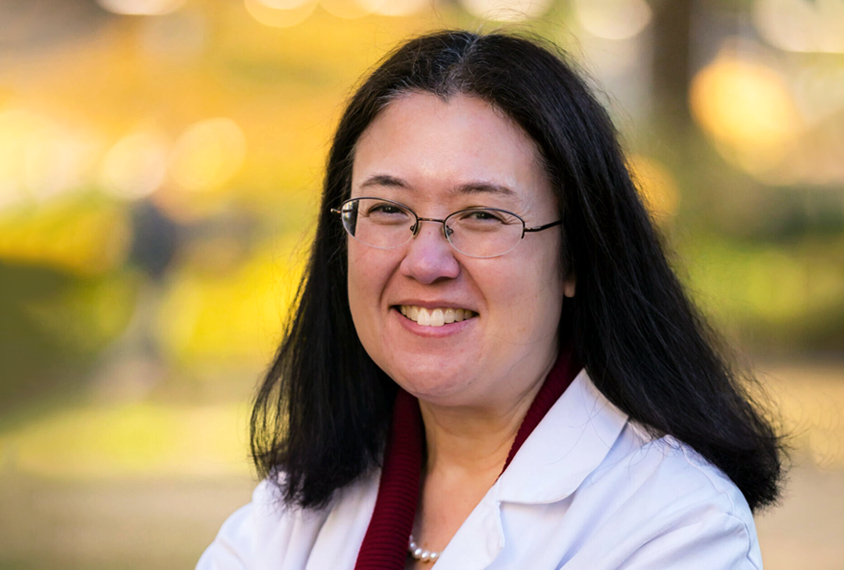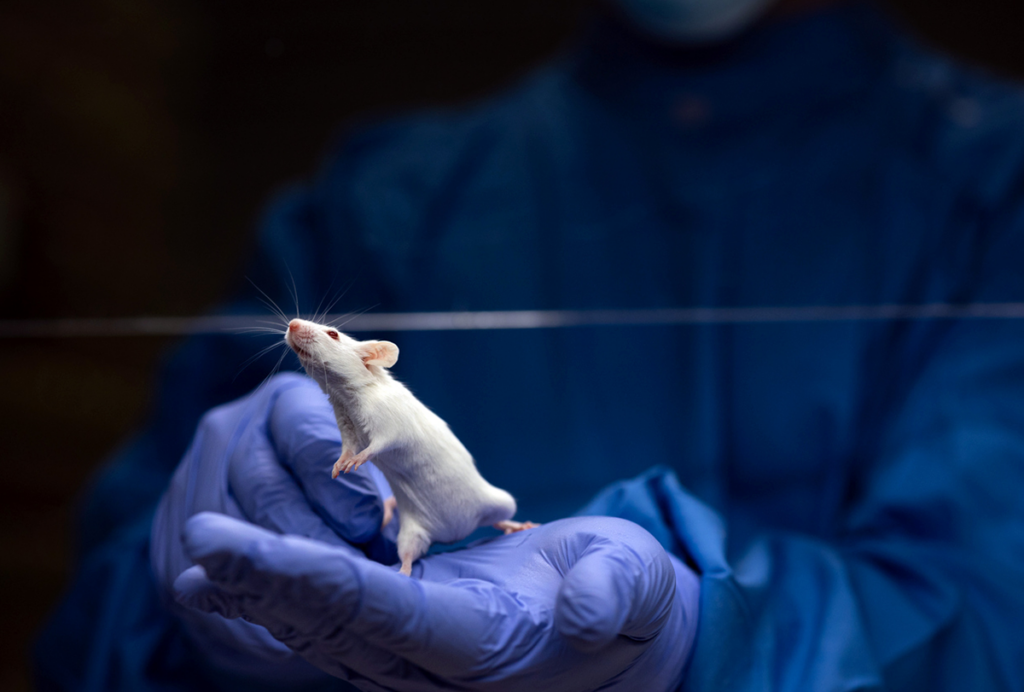Wendy Chung, director of clinical research at the Simons Foundation Autism Research Initiative (SFARI), plans to step down on 30 June 2023 to become chief of the pediatrics department at Boston Children’s Hospital in Massachusetts — taking two of the foundation’s biggest autism-related research projects with her. The Simons Foundation plans to continue funding both projects, SPARK and Simons Searchlight, through grants, with Chung continuing in her role as principal investigator. (Spectrum is an editorially independent program of SFARI.)
Chung says that her new roles — which also include professor at Harvard Medical School and president of the Children’s Hospital Pediatric Associates — will help advance the projects and emphasizes that all of the data will remain freely available to qualified researchers.
“They’ll continue uninterrupted,” she says. “And I think they will benefit from being under my leadership while I’m going to be at Boston Children’s and affiliated with Harvard.”
Kelsey Martin, director of SFARI and of the Simons Foundation Neuroscience Collaborations, agrees. “She’s an incredible leader of both cohorts and research programs,” she says of Chung. “And I think that the move really gives us some amazing opportunities to really increase the impact of SPARK and Searchlight.”
One area with potential for growth is quantitative phenotyping — the use of technologies such as wearable sensors “to really better understand that human condition,” Martin explains. “What are the features of autism, which has enormous heterogeneity in terms of how it’s manifested?” Working in close collaboration with Boston Children’s, in addition to SPARK’s existing 31 clinical sites, will help move certain discoveries into clinical trials, she says.
C
hung’s first foray into autism research was back in 2009, when she became principal investigator of the Simons Variation in Individuals Project (Simons VIP), which aimed to better understand the conditions associated with changes in the 16p11.2 chromosomal region. That project expanded into Simons Searchlight, now an international cohort of people with about 175 neurogenetic conditions.Chung, who is also professor of pediatrics in medicine at Columbia University, later helped launch a separate project called SPARK (Simons Foundation Powering Autism Research), an ongoing U.S.-based cohort study that includes more than 100,000 autistic people and 175,000 of their family members. There are 26 staff members in total on those teams (22 on SPARK and 4 on Simons Searchlight).
“Wendy’s expertise in pediatrics and neurogenetics as well as her championship of rare disorders will be a huge asset to further advancing exceptional clinical care, transformative research, and inclusive patient engagement, which are key to the mission of Boston Children’s,” says Mustafa Sahin, director of the hospital’s Translational Neuroscience Center and professor of neurology at Harvard. “In this new role, I am certain that Wendy will be a very effective advocate for providing more opportunities at earlier time points for diagnosis and therapeutic interventions.”
The move is welcomed by Elise Robinson, assistant professor of epidemiology at the Broad Institute of MIT and Harvard, who has reached out to Chung over the years for everything from updates on autism-related research efforts to career advice. “She’s always been a joy to interact with and look up to,” Robinson says. “I just admire Wendy and couldn’t be happier that she’s going to be a neighbor.”
Robinson notes that the SPARK project has been a boon to her work as co-chair of the Autism Spectrum Disorder Working Group for the Psychiatric Genomics Consortium and the Broad’s Neurodevelopmental Variability Initiative, which aggregates autism, intellectual disability and other neurodevelopmental genetic data from a number of resources. “The SPARK data is, and will remain for quite some time, the largest contributing cohort to those ongoing efforts,” she says.
I
n addition to conducting her research, Chung will see patients at Boston Children’s and teach classes at Harvard. “I am a clinician first and forthright,” she says, but adds that she also values her roles as an educator and a researcher. “The new thing for me in terms of this is being able to play more of the leadership, administratively and also by example.”“Dr. Chung is a tremendous addition to our Boston Children’s team,” said Kevin B. Churchwell, the hospital’s president and chief executive officer, in a statement. “We’re excited to benefit from her exceptional track record of success in pediatric care and leadership, genetic research, mentoring, advocacy, and also her vision of where pediatric medicine is headed.”
“I’m really excited about the opportunity,” Chung says. “I think it’s going to be an exciting way for me to, I hope, meet new people, make new friends and bring in new opportunities reciprocally in terms of the things that we’re going to be doing both in Boston but really for the community at large.”
Martin echoes that sentiment, noting that Chung is well positioned to make the best of those opportunities. “I can’t think of a better person to run Boston Children’s than Wendy Chung,” she says, “and I think it’s going to be incredibly impactful for, not just pediatric health and the health of children and families, but in particular for autism and neurodevelopmental disorders and rare genetic disorders, because I think Wendy brings incredible expertise and vision in those areas.”





